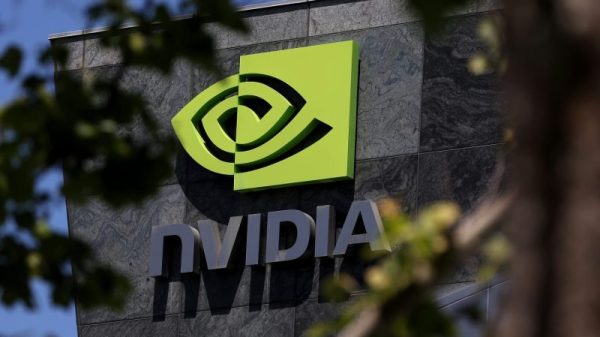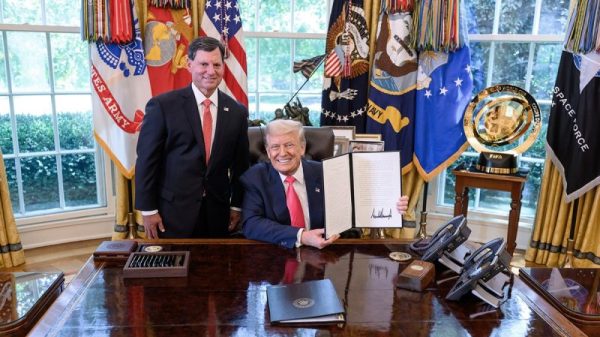A multibillion-dollar deal that could dramatically change the future of the Big Ten is on ice for now after pushback from two of the conference’s schools.
We know where Michigan and USC stand. Some at Michigan have even threatened the possibility of leaving the league if the deal goes through.
Bitter rivals will need ‘unity’ if the proposed $2.4 billion Big Ten investment deal is to go forward.
So where does Ohio State stand?
‘We have been assessing the proposal and have not made a final decision,’ Ohio State President Ted Carter told The Dispatch in a statement.
As part of the proposed deal, UC Investments would earn 10% of the Big Ten’s media and sponsorship rights earnings for 15 years, after which it could sell its stake. The remaining 90% would be divided among the schools, with payouts varying based on a university’s earning potential.
Carter said ‘Ohio State is a proud member of the Big Ten’ and ‘strongly support(s) the conference’s longstanding history of collaborative decision making and all 18 members’ practice of working together for the collective benefit of our student-athletes, universities and fans.’
During his investiture last November, Carter has affirmed Ohio State intends to maintain all 36 Division I sports it supports and its nearly 1,000 student athletes.
‘As the university adds scholarships and implements revenue sharing, we support the conference’s exploration of new and innovative revenue sources,’ Carter said. ‘Protecting Ohio State’s best interest is always our top priority, and any future external partnership must be rigorously vetted.’
Big Ten commissioner Tony Petitti began investigating potential private equity opportunities for the conference last year with the blessing of the conference’s university leaders.
Michigan has been the most outspoken against the deal thus far.
At a previously scheduled meeting of Michigan’s Board of Regents in October, members Jordan Acker and Mark Bernstein criticized the idea of bringing private equity into the conference, calling the deal ‘reckless’ and ‘short-sighted.’ Bernstein, the board’s chairman, specifically compared the deal to a ‘payday loan.’
One of those members went as far to say that Michigan would consider leaving the Big Ten when the current media rights deal expires in 2036 if the deal goes through without unanimous approval.
‘That would be the end of Michigan, as far as I can see, in the Big Ten conference,’ Acker said.
USC has also expressed some concern with the deal, though it hasn’t gone as far as Michigan. USC’s issue seems to stem from its position outside the top tier of member institutions. The deal currently calls for a tiered distribution of funds based on a school’s market value. Ohio State, Michigan, and Penn State would be in the top tier and could receive as much as $190 million. The other schools would get anywhere from $110 million to $150 million.






















